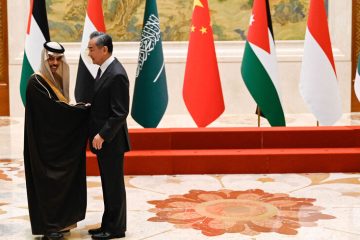
China on Israel-Palestine: Positioning Itself as an Empathetic Great Power?
Almost a week after Hamas launched a surprise attack on Israel on October 7, China’s foreign minister, Wang Yi, called for a global peace conference and a ceasefire. China’s messages can be boiled down to three main points: 1) condemning attacks on both Israeli and Palestinian civilians and the breaking of international law, 2) calling for dialogue between the warring sides, and 3) emphasising the necessity of a two-state solution. China’s messaging follows a similar pattern expressed after previous Israel-Palestine escalations, whereby Beijing refuses to take sides explicitly, urging restraint and promoting peace talks. Chinese-Palestinian & Chinese-Israeli relations: China’s ‘neutrality’ leans in support of Palestine, at least rhetorically. While insisting on both Israel and Palestine’s right to statehood, Wang Yi …
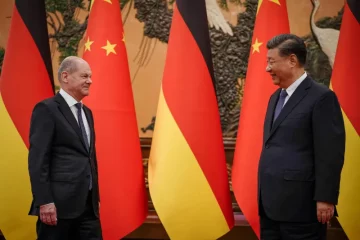
Wandel durch Handel: Germany’s strategic diplomacy vis-à-vis China and Taiwan
Relations between Germany and Taiwan strengthened in 2022, despite Germany’s reluctant acceptance of Beijing’s One China Policy. Meanwhile, bilateral economic ties with both Taiwan and China have sparked discussions about Germany’s foreign policy goals and whether Berlin is reviving the antiquated diplomatic strategy known as Wandel durch Handel (“Change through Trade”) amidst Europe’s growing security vulnerabilities. In June 2023, Germany and the Chinese state-owned firm COSCO signed a contract for the sale of shares in Hamburg’s seaports. Chancellor Olaf Scholz’s visits to Taiwan, once unimaginable , were strategically timed to coincide with the contract. Two months later, Germany established an agreement with TSMC, Taiwan’s largest semiconductor company. Prevailing narratives among policy circles view Wandel durch Handel as a relic from Germany’s regulatory …
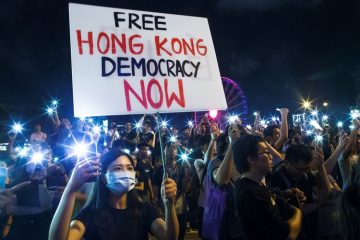
Can the Pro-Democracy Hong Kong Lobby Still Influence Western Foreign Policy?
During the 2019 Anti-Extradition Bill protests in Hong Kong, activists made extensive efforts to internationalize their movement, engaging in public diplomacy and lobbying foreign governments to support their cause. The Hong Kong pro-democracy lobby—a loose coalition of individuals and organizations aiming to steer Western foreign policy in a direction they believe will benefit Hong Kong’s democratic prospects—emerged amidst this unprecedented grassroots mobilization. Four years on, however, the Hong Kong lobby is facing an uncertain future. Activists are striving to overcome the barriers posed by transnational repression and reinvent their image in today’s fraught geopolitical landscape. Two factors explain the success of Hong Kong activists in constructing and consolidating their lobbying infrastructure in 2019. First, the expansion and transformation of the …
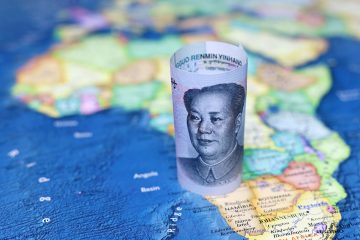
China’s Role in Restructuring Debt in Africa
Africa’s public debt burden has doubled from 2010 to date. Data from the International Debt Statistics Data as of December 2022 shows that African countries owe $ 644855.2 billion (USD). The International Monetary Fund (IMF) and the World Bank consider 22 low-income African countries to be either in debt distress or at high risk of debt distress as of November 2022. Debt distress in this context means a country is experiencing difficulties in servicing its debt. A high debt burden could risk the continent’s economic growth, development, and climate investments. The additional global economic downturn and falling commodity process could compound the issue for countries on the continent. While there is no immediate threat of systemic and financial collapse due …
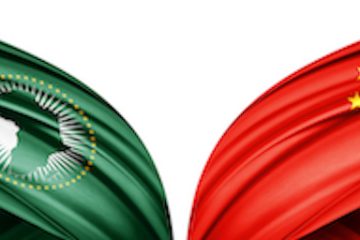
Bridging State Responsibility and Opportunities as African Countries Join in the Digital Silk Road
In 2015 China launched the Digital Silk Road (DSR hereafter). The DSR is an essential part of the One Belt, One Road (BRI) strategy with significant domestic and foreign policy objectives. China has made enormous investments that have allowed it to achieve rapid technological advancement and economic growth. As of 2021, Chinese firms were three of the world’s largest technology companies by revenue. According to the World Intellectual Property Organisation (WIPO), in 2020 China reported 1.5 million patent applications, 2.5 times more than the second leading country, the United States. The DSR is part of China’s plan to spread its technical and proprietary knowledge by building telecommunications, data, and financial infrastructure in countries participating in the BRI. The Nigerian digital …

OxPol Blogcast Episode 6: The Space Debris Problem
Welcome to the OxPol Blogcast, a podcast where we will be sharing research, analysis, and experiences from members of the University of Oxford’s Department of Politics and International Relations. On each, episode we will talk to a guest about a piece they’ve written for the OxPol Blog. Then, we’ll discuss their larger research agenda, their insights on conducting political science, and their time at Oxford. On this episode of the OxPol BlogCast, host Chase Harrison talks to MPhil graduate Samantha Potter about the space debris problem, the laws and procedures that govern outer space, and what it looks like to do space research at Oxford. Read the original blog post here: blog.politics.ox.ac.uk/what-chinas-f…bris-problem/ This work is the author’s own and does not …
OxPol Blogcast Episode 5: Biden’s North Korea Policy
Welcome to the OxPol Blogcast, a podcast where we will be sharing research, analysis, and experiences from members of the University of Oxford’s Department of Politics and International Relations. On each, episode we will talk to a guest about a piece they’ve written for the OxPol Blog. Then, we’ll discuss their larger research agenda, their insights on conducting political science, and their time at Oxford. On this episode of the OxPol BlogCast, host Chase Harrison talks to Stipendiary Lecturer in Politics Edward Howell about Biden’s policy on North Korea, regional relations around the Korean Peninsula, and exact you conducts research on a notoriously closed off country like North Korea. Read the original blog post here: https://blog.politics.ox.ac.uk/washington-and-pyongyang-back-to-square-one/
Washington and Pyongyang: Back to Square One?
US administrations may change, but the North Korean problem, in all its guises, has plagued the United States for at least the past thirty years. The new Commander-in-Chief, Joe Biden, and his administration are facing increasing calls from the broader international community to clarify US policy towards East Asia, which includes China, Japan, and the two Koreas. The last Democratic administration, that of Barack Obama, focused on strengthening US bilateral alliances within the East Asian region, regional stability, and bolstering relationships with emerging powers. Yet, it did not fully address one of the greatest geopolitical challenges in the region: North Korea’s nuclear program. During the Obama administration, North Korea conducted four nuclear tests, one of which it claimed to be …









